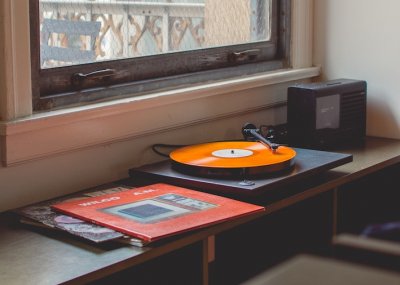Music and Mental Health – Are Your Tunes Bringing You Down?

photo by Dusan Jovic
by Andrea M. Darcy
Addicted to your playlists? And wondering if you need to consider if it’s affecting your moods? Just how connected are music and mental health, anyway?
Music and Mental Health
The power of music to uplift our mind and moods has long intrigued mankind. Plato, for example, is quoted as saying that music, “gives soul to the universe, wings to the mind, flight to the imagination, and charm and gaiety to life and to everything”.
Music has also long been used as a form of therapy. According to the American Music Therapy association, music therapy was already being trialled in the early 1800s to help medical disesases and alter dream states.
But what does modern research have to say about the power of music to negatively affect our moods? And are some of us more affected than others? If so, why?
It’s not about the music, it’s about you
The way one person responds to music can be very different than the way the next person does.
For example, sad songs don’t make everyone sad. In fact some people feel good when listening to sad songs, explaining the popularity of ballads and songs about heartbreak climbing the charts.
One study found that while some people experience genuinely negative emotions when listening to sad music, which it refers to as “grief-stricken sorrow’, it was more common to feel positive kinds of sadness, such as “comforting sorrow’ and ‘sweet sorrow’.
I feel all sorts of things, all at once

photo by Travis Yewell
Music can also be a way to have a sort of emotional purge. We can feel joy, nostalgia, sadness… all in one song. For most of us this is a unique experience, as we don’t go through so many emotions at once in day-to-day life. (The exception here might be those with borderline personality disorder, who can swing from one emotion to the next very quickly).
And even if you think your background music isn’t affecting you, as it’s not ‘emotional music’, it still might be.
Neuroscientists using functional magnetic resonance to monitor brain activity during music listening discovered that emotion-related areas of the brain activated even if the music was just pleasurable and enjoyable over happy or sad.
So then why can music leave me feeling so low sometimes?
A survey of over 1500 young people found that 17 per cent reported feeling worse when they listened to sad music when already feeling low. And it was more common for females to be affected than males.
But you won’t feel sad listening to music because you identify as the female gender. The key phrase in the above is ‘already feeling low’ (more females than males experience depression). The affected participants were already prone to sadness and depression regardless, or had difficult past experiences that affected their moods.
The same study found that it was young people who were bullied, had strained peer relations, or compared themselves negatively to others who were the most likely to find that music and mental health became a negative connection.
Why we can’t stop the sad music

photo by Jem Sahagun
A study on music use for mood regulation in young people explains–
“Although it appears that people with depression are most likely to use music to intensify a negative mood, they are also the least aware of this tendency. This is further complicated by the finding that an individual can become aware of unhelpful listening habits, but can lose that awareness when in a depressive state and revert to intensifying strategies.”
In other words, the the more depressed we are, the more likely we are to then use music to intensify our sadness. And the less likely we are to recognise that music is making things worse and stop listening.
This is because depression affects our cognitive functioning (ability to think clearly and make wise decisions and judgements). So even if when we are in a stable mood we can recognise the affect music has on us? We can lose this clarity when we are sad.
Am I addicted to music?
No research has shown music to be an addiction in and of itself. And we all need to zone out now and then when life is overwhelming. So it’s normal to escape into music, film, or TV sometimes.
But if it’s a daily thing, we need to ask ourselves good questions.
Questions to ask yourself about music and mental health
- Am I using music to escape from feelings?
- Or to hide from dealing with difficult experiences that need my attention?
- Is my music listening affecting my relationships?
- And day-to-day coping? Do I forget important things, does it make me late or distracted?
- And mean I avoid making good decisions?
- What am I using music to avoid?
- And is that avoidance pattern itself the real thing I am addicted to? Not the music?
If these questions produce uncomfortable answers, then we might be using music as an unhealthy coping mechanism. And it would be a good idea to ask ourselves if the payoff is worth it, or it might be time to start facing ourselves and our lives head on.
Ready to stop hiding from life and start being your best self? We connect you with some of London’s most highly rated therapists who truly care and want to help. Or use our online therapy platform to find UK-wide therapists and online counselling now.
Still have a question about music and mental health? Post below.
 Andrea M. Darcy left a film career to pursue a career in self development. She is now a popular mental health writer who also runs a consultancy helping people find the right therapy and therapist for them. Find her on Instagram @am_darcy
Andrea M. Darcy left a film career to pursue a career in self development. She is now a popular mental health writer who also runs a consultancy helping people find the right therapy and therapist for them. Find her on Instagram @am_darcy




